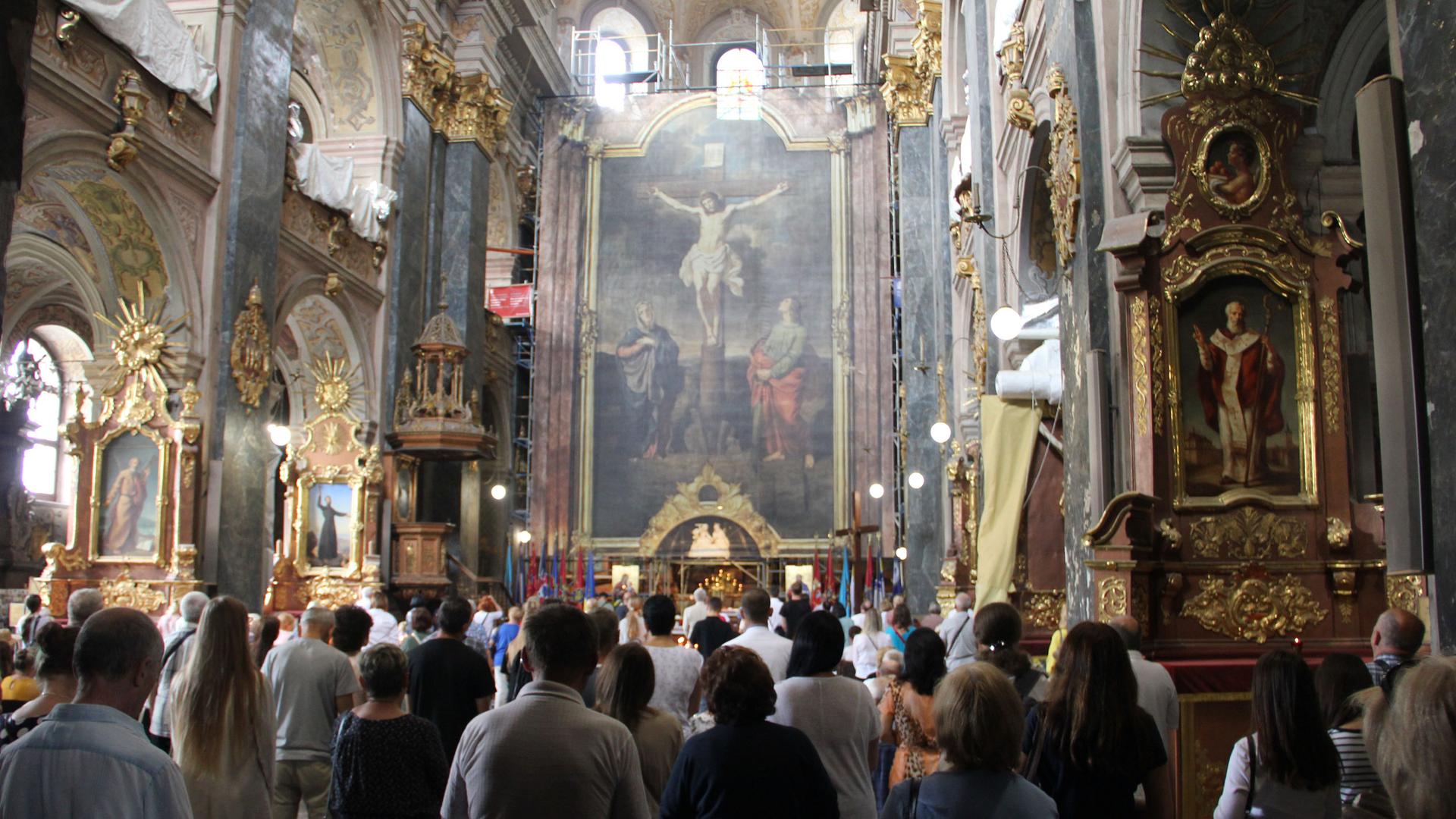Ukrainian Greek Catholics lament lack of support by Vatican amid war with Russia
Saints Peter and Paul Garrison Church, in Lviv, Ukraine, was packed during a recent 11 a.m. weekday mass.
The service was followed by a funeral for fallen Ukrainian soldier Serhiy Stelmakhov. As the casket left the church, everyone kneeled down on the ground to pay their respects.
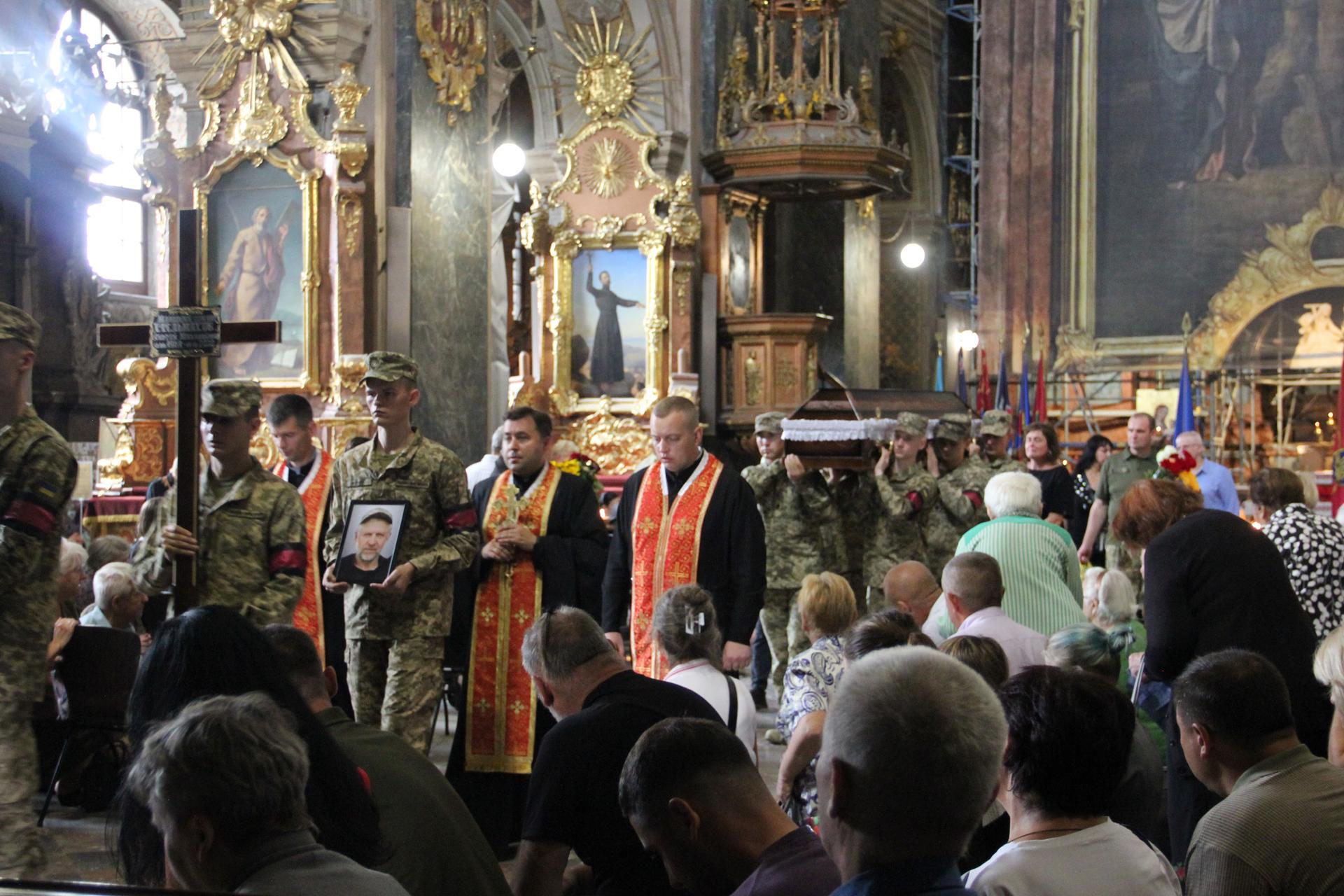
“The war is terrible, very terrible, there are soldiers dying every day, Ukrainians dying every day. Faith helps very strongly,” said Taras Mykhalchuk, father superior at the Greek Catholic church.
Support for Ukraine during wartime is of utmost importance to Ukrainian Catholics. But recent comments made by Pope Francis left many Catholics questioning the Vatican’s role amid war.
Tensions escalated after Pope Francis praised Russian historical figures such as Peter the Great and Catherine the Great to an audience of Russian youth. He also told the youth that they are “the heirs of the great Mother Russia.”
Many Ukrainian Catholics were upset by the pope’s comments. The majority of Catholics here belong to the Greek Catholic Church, with more than 5.5 million members.
Sviatoslav Shevchuk, head of the Greek Catholic Church, issued a response to the pope’s comments. He said the historical figures mentioned by the pope “are the worst example of imperialism and extreme Russian nationalism.”
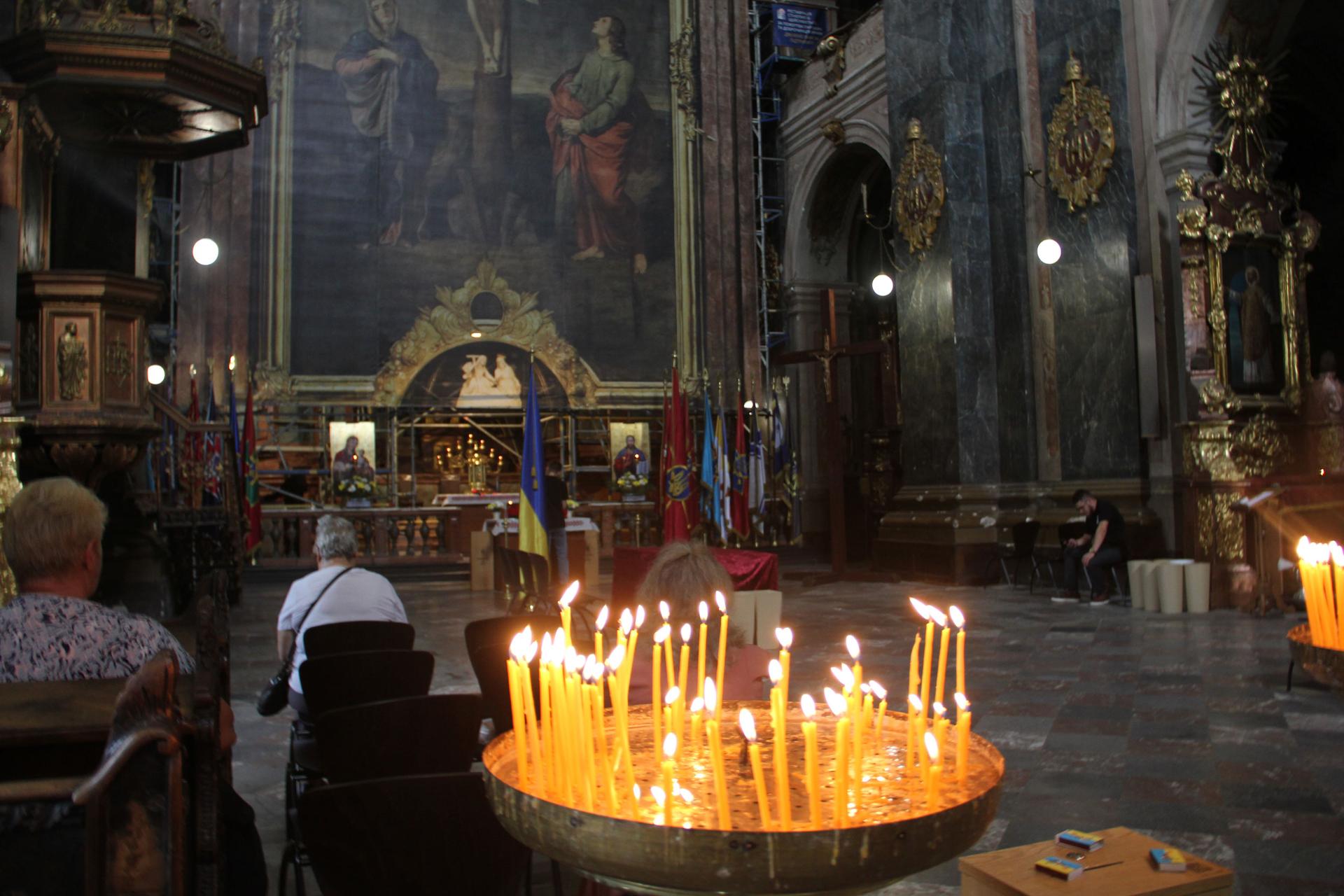
The pope later clarified that he “was not thinking of imperialism” when he made the remarks. And since then, Ukrainian Greek Catholic leaders have met with the pope in Rome.
But this will likely continue to be a tense topic, according to Anna Bisikalo, a doctoral candidate at Harvard University, who studies the history of the Ukrainian Greek Catholic Church.
She said this rift is rooted in the history of the Greek Catholic Church in Ukraine. In 1946, the Soviets took over western Ukraine, and banned churches. It only became legal again in 1989, Bisikalo said.
“There is also not just a history of being repressed by the Russian empire, but by being disappointed by a lack of support from the Vatican or being disappointed by the Vatican’s priorities not matching Greek Catholic priorities,” she said.
“I understand if the Ukrainian Greek Catholic Church needs more explicit assurances from the Vatican and Pope Francis that he supports their cause.”
At the Ukrainian Catholic University in Lviv, the remains of Russian military equipment on display is a daily reminder to faculty and students that their country is at war.
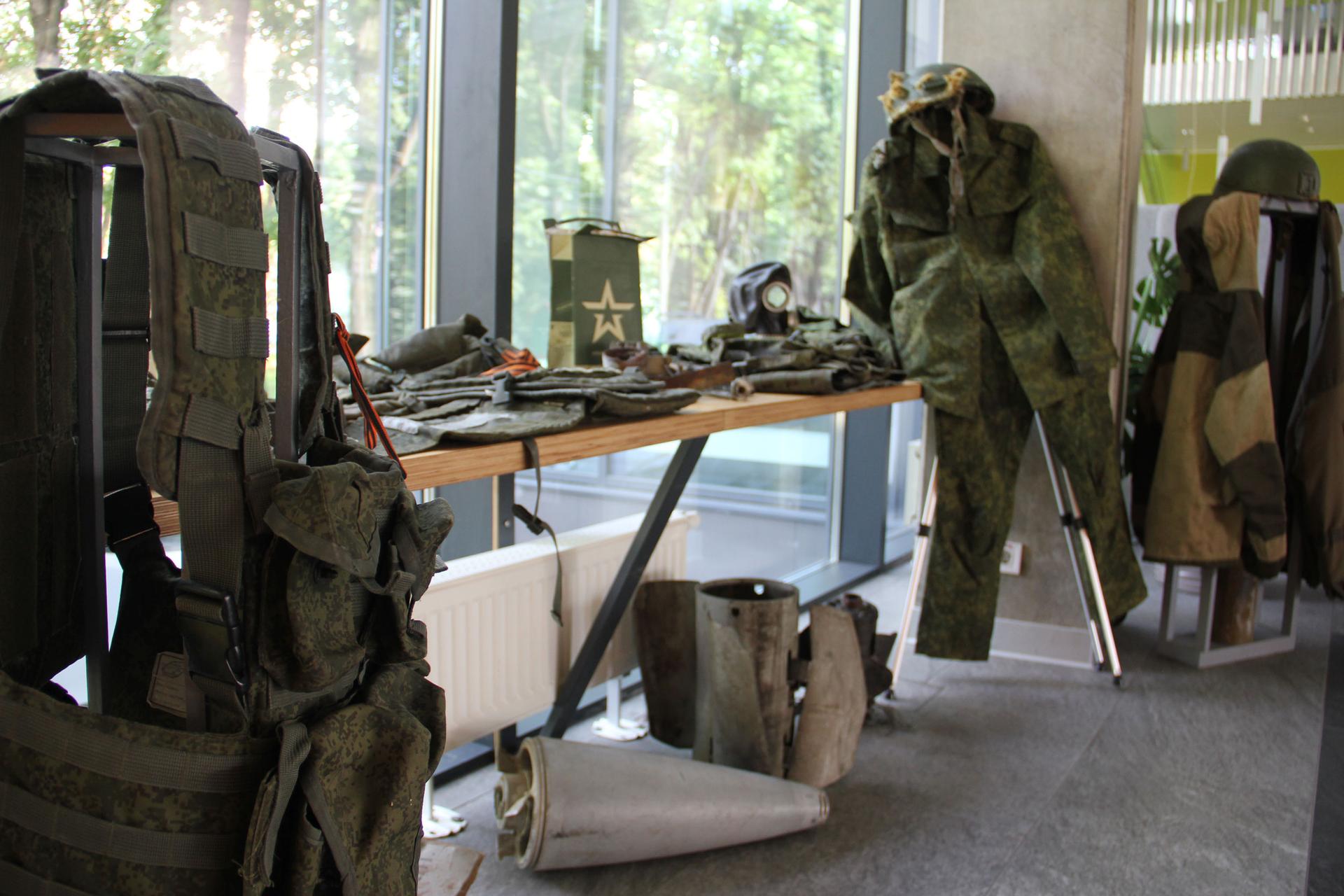
University Vice Rector Myroslav Marynovych said 23 soldiers connected to the university have died in the war.
Marynovych, who was a prisoner during Soviet times due to his human rights activism, said he expects his church to speak more powerfully against Russian aggression at this time.
“Russia subverted this international order, ruined it,” Marynovych said. “And it would be important for me to hear, what is this moment for the church? How would Jesus explain what is going on?”
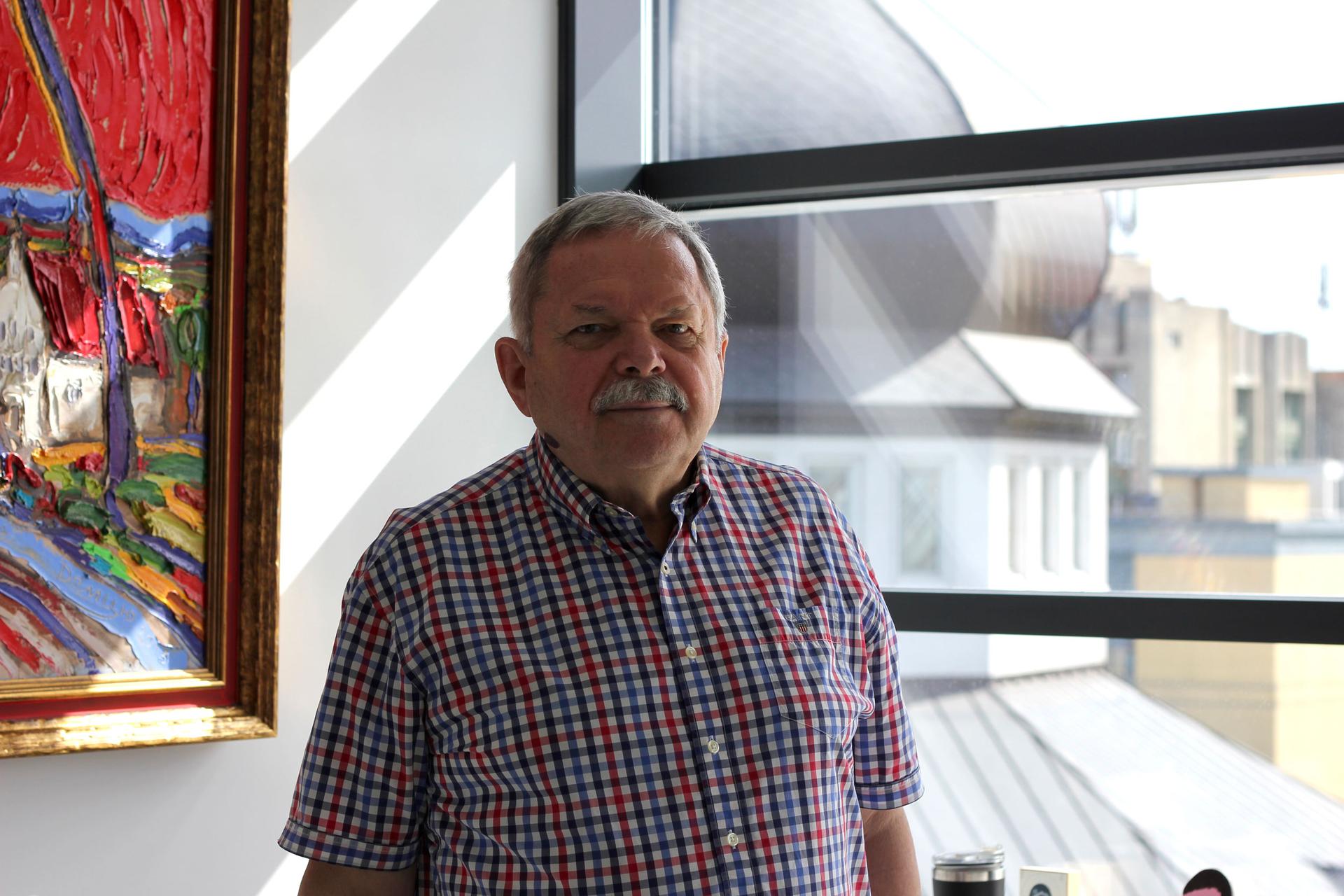
Yuriy Pidlisny, chair of the political science department at Ukrainian Catholic University, said the pope’s comments were painful, and they come after other controversies and missteps.
For example, in Rome this year, the Vatican asked a Ukrainian and a Russian to participate together in an Easter procession. The Ukrainian government said this equated “the victim and the aggressor.”
“I think he has, probably, good pastoral ends in his mind, but what he is doing is absolutely anti-Ukrainian and I would [say] even pro-Russian,” Pidlisny said.
At the same time, Pidlisny said he thinks the Vatican can play a larger role in the war and it would be good for the pope to visit Ukraine.
Pidlisny pointed out that the Vatican and Pope Francis himself played a role in the liberation of Ukrainian war prisoners.
He also referenced the case of two Ukrainian Greek Catholic priests who are currently missing and thought to be held by the Russians, suggesting there are other ways the pope could play a role.
Ukrainians, even non-Catholics, have long seen the Vatican as a moral force, said Anatolii Babynskyi, a research fellow and lecturer at the Institute of Church History at the Ukrainian Catholic University.
“They want to hear moral judgements, moral assessments of what is happening. So, they want to hear not what is possible — but what is just,” he said.
Back at Saints Peter and Paul Garrison Church, an ongoing installation depicts the horrors of war. Rows and rows of photographs of fallen soldiers have been added to it since 2014, when Russia invaded and then annexed Crimea.
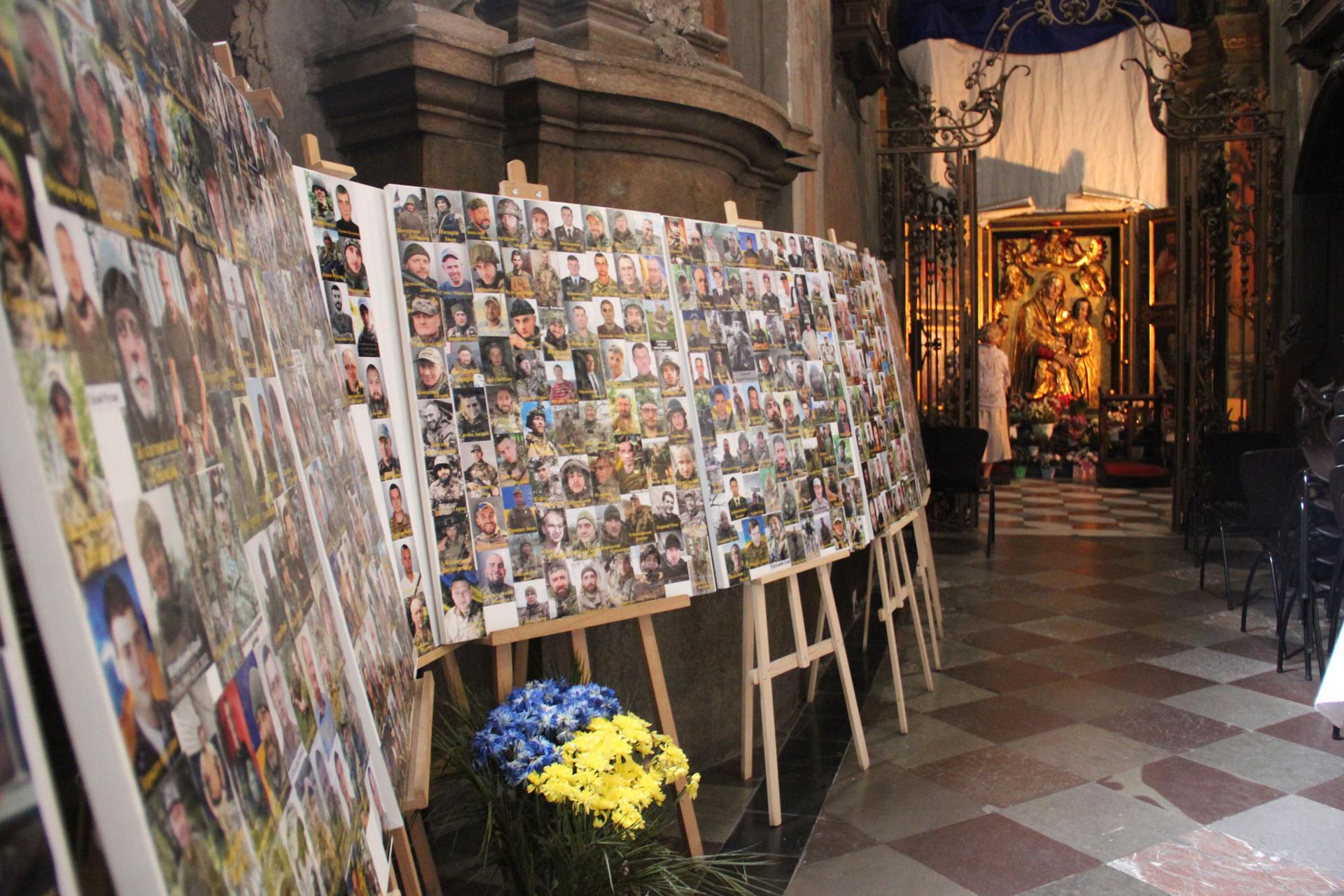
As a military chaplain, Father Taras Mykhalchuk has visited the front lines. His own brother is serving in the military.
“We are people who want to be with God, but we are today called to defend our land, our truth and to protect our kids. That’s why we are asking for people to be with us to the end, until there is a fair peace.”
Ukrainians are a faithful people, Mykhalchuk said, and they will continue to pray for the pope in their masses.
